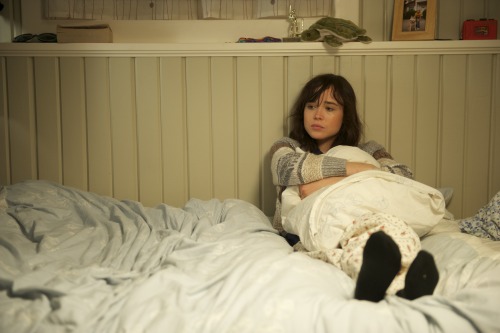If you were to watch “Touchy Feely” for any one reason, it should be for Josh Pais’ performance as Paul, a dentist who’s basically dead inside, or “wan,” as his sister Abby (Rosemarie DeWitt) keeps describing him.
“Touchy Feely” is the latest film from Lynn Shelton, who is a secret weapon in the independent film world. Her loose and mainly unscripted films are refreshing in a world dominated by formula and safety. With “Touchy Feely,” Shelton feels like she is trying to move towards something more structured all while holding on to the characteristics that have defined her work as a filmmaker. Yet, there is a difficulty in balancing the two, and it is not achieved here.
This is not to say that there aren’t many strong parts to “Touchy Feely.” It’s premise is weird and original enough to make you want to watch it, and credit where credit is due for not ending the way you would expect it to end. Once again, Shelton focuses on a dysfunctional family that masks its dysfunction with awkward silences. Paul raises his daughter Jenny (Ellen Page) alone and gives her a job as his dental assistant, which clearly keeps her from achieving some of her actual dreams. There’s no indication of what happened to Paul’s wife, but he makes do with what he can contribute. Basically, what he can contribute is blank stares while Jenny makes him dinner.

Paul is in an inexplicable rut. When he goes to a new age therapist (a criminally underused Allison Janney) and is asked about his happy place, he says his back office, where he looks at x-rays in the dark. It’s perfectly telling of his character that the only way he can interact with people is when he’s nowhere near them. This is also why he hasn’t gotten a new patient in a long time, and he just doesn’t seem to care about lowering his patient demographic to below the age of 80.
Suddenly, Paul is ordained with a seemingly magic ability to heal the mouth pains of anyone he touches. This validation is enough to give Paul just the slightest of confidence boosts. Shelton never turns his ability into schlocky humor; the idea in itself is funny enough. At the same time that Paul finds new catharsis at his job, Abby finds troubles at her’s as she gains a sudden aversion to human skin. Neither Paul’s skill nor Abby’s conflict are explained, which makes the intrigue of “Touchy Feely” interesting enough. Some mysteries are more engaging when they’re left unexplained. Also, “Touchy Feely” is not trying to be a sci-fi allegory.
The one thing that “Touchy Feely” gets absolutely right is character consistency. As “Humpday” and “Your Sister’s Sister” showed, Lynn Shelton’s talent lies in putting a bunch of skilled actors in a room together and letting the camera run. Still, it’s odd how many endless debates there are here, yet still too much is left unspoken. It’s like this time she let the camera run, but with no end goal in mind.
The biggest problem the film faces is that it isn’t confrontational enough. For example, one emotional turning point is built up to using only images, not words. But because nothing is said, I got a sense that neither character knew why anyone was so upset. While less is usually more, too little is definitely not enough.

The most frustrating flaw in “Touchy Feely” is that the two main story lines basically never cross paths. Doesn’t it make sense that somebody with healing powers might at least try to help somebody going through an odd physical pain? Instead, Ron Livingston is used to try and remedy DeWitt’s story. I still cannot figure out why he was there at all, and why he wasn’t spending his screen time complaining about his boss. Because nothing feels connected, in the end it feels like nothing that was just witnessed matters at all.
The best thing I can say about “Touchy Feely” is that in the end, Lynn Shelton looks like a true cinematic director. Every shot has a purpose, and every shot is framed just right. She shows the sides of Seattle that are never seen; the Space Needle is just a speck in the background at one point. The film ends with a shot that’s warm, friendly, and perfectly framed. It’s great to see an indie movie that doesn’t resort to a cut to black. However, the final shot feels like it belongs in a different movie, one that is more complete and didn’t try and just skip around from plot point to plot point. “Touchy Feely” would have benefitted from bolder and clearer character choices. I think what I am really trying to say is that “Touchy Feely” needed more Allison Janney.

